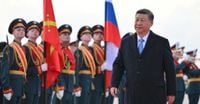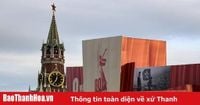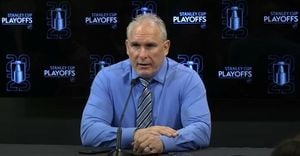A 72-hour ceasefire proposed by Russian President Vladimir Putin has officially taken effect, with Russian forces ceasing offensive operations starting on May 8, 2025. The ceasefire is expected to last until midnight on May 10, 2025, and is described as a humanitarian gesture marking the 80th anniversary of the Soviet victory over Nazi Germany.
The Kremlin stated that the ceasefire aims to create space for direct peace talks with Ukraine without preconditions. Kremlin spokesman Dmitry Peskov confirmed Moscow's commitment to the ceasefire despite a record drone attack by Ukraine before it began. "This is an initiative from the Russian side, from President Putin. It is still in effect," Peskov emphasized.
However, Ukrainian President Volodymyr Zelensky has rejected the ceasefire, calling it a "manipulation attempt" and accusing Russia of using humanitarian proposals to gain tactical advantages. Instead of pausing military operations, Ukraine has ramped up its drone campaign, resulting in a record number of civilian casualties in the past week, including 15 deaths and 142 injuries.
Russian Foreign Ministry spokeswoman Maria Zakharova accused Zelensky of engaging in "classic terrorism" by threatening civilians in Russia while simultaneously seeking more funding from Western allies. Peskov condemned the attacks, asserting that Kiev revealed a "terrorist tendency". He noted that Russian special services and the military are taking all necessary measures to ensure that Victory Day events proceed safely across the country.
Despite calls from some lawmakers for an "asymmetric response" to the drone attacks, the Kremlin reiterated its stance: "All instructions have been given, and there are no new elements here," Peskov stated when asked about the possibility of retaliation during the ceasefire.
Victory Day, celebrated on May 9, commemorates the defeat of Nazi Germany in 1945 and remains one of the most significant holidays in Russia. This year’s observance is particularly poignant, coinciding with ongoing hostilities in Ukraine.
Meanwhile, Chinese President Xi Jinping is on a state visit to Russia from May 7 to May 10, 2025, at the invitation of President Putin. Xi is set to attend the Victory Day celebrations on May 9 alongside other foreign leaders. This visit is expected to inject new momentum into the comprehensive strategic partnership between China and Russia.
Xi has visited Russia 11 times since becoming President of China, with the two leaders meeting more than 40 times over the years. Russian Foreign Ministry spokeswoman Maria Zakharova described Xi's visit as "one of the central events in Russia-China relations this year." During this trip, Xi is expected to sign agreements aimed at strengthening the "no limits" strategic partnership with Russia.
The two leaders will focus on the Power of Siberia 2 gas pipeline project and discuss Ukraine and Russia-US relations during their talks on May 8, 2025. In 2024, bilateral trade between China and Russia reached $244.8 billion, marking China as Russia's largest trading partner for 15 consecutive years. China currently imports more oil and gas from Russia than any other country, especially as Moscow faces sanctions from the West.
In a recent article published by Russian media, Xi emphasized that China and Russia must "firmly maintain the post-war international order" and work together to counter any plots that could undermine their friendship and mutual trust.
As the ceasefire takes effect, attention is focused on Moscow, where preparations for the 80th Victory Day parade are underway. The Kremlin has confirmed that Russian forces will adhere to the ceasefire, but warned that they will respond "immediately" if Ukraine attacks during this period.
In the United States, President Donald Trump stated on May 7, 2025, that the situation surrounding the conflict in Ukraine is reaching a critical point where appropriate decisions must be made. During a press conference at the White House, Trump responded to comments from US Deputy President JD Vance, who claimed that Russia is demanding too much in negotiations with Ukraine.
Vance highlighted that the White House is focused on facilitating direct negotiations between the two sides and is prepared to "walk away" if certain standards are not met. He noted that the Russians are currently requesting specific concessions to end the conflict, which the US believes are excessive.
Steve Witkoff, Trump’s special envoy, has engaged in four rounds of direct negotiations with Putin, none of which have yielded specific concessions from the Russian side. In his remarks, Vance reiterated the administration's readiness to "walk away" if progress is not achieved.
Vance stressed the importance of both Russians and Ukrainians agreeing on basic principles to sit down and talk to each other. He stated, "Clearly, the US is eager to participate in those discussions, but it is crucial that Russia and Ukraine begin communicating. We believe that is the next significant step we want to take."
President Putin has repeatedly called for resolving the Ukraine conflict, emphasizing the need to consider Russia's interests when addressing the root causes of the crisis. According to the Kremlin, this is the only way to establish lasting peace, which is Moscow's ultimate goal.
As the ceasefire unfolds and international diplomatic efforts intensify, the world watches closely, hoping for a resolution to the ongoing conflict and a return to stability in the region.





